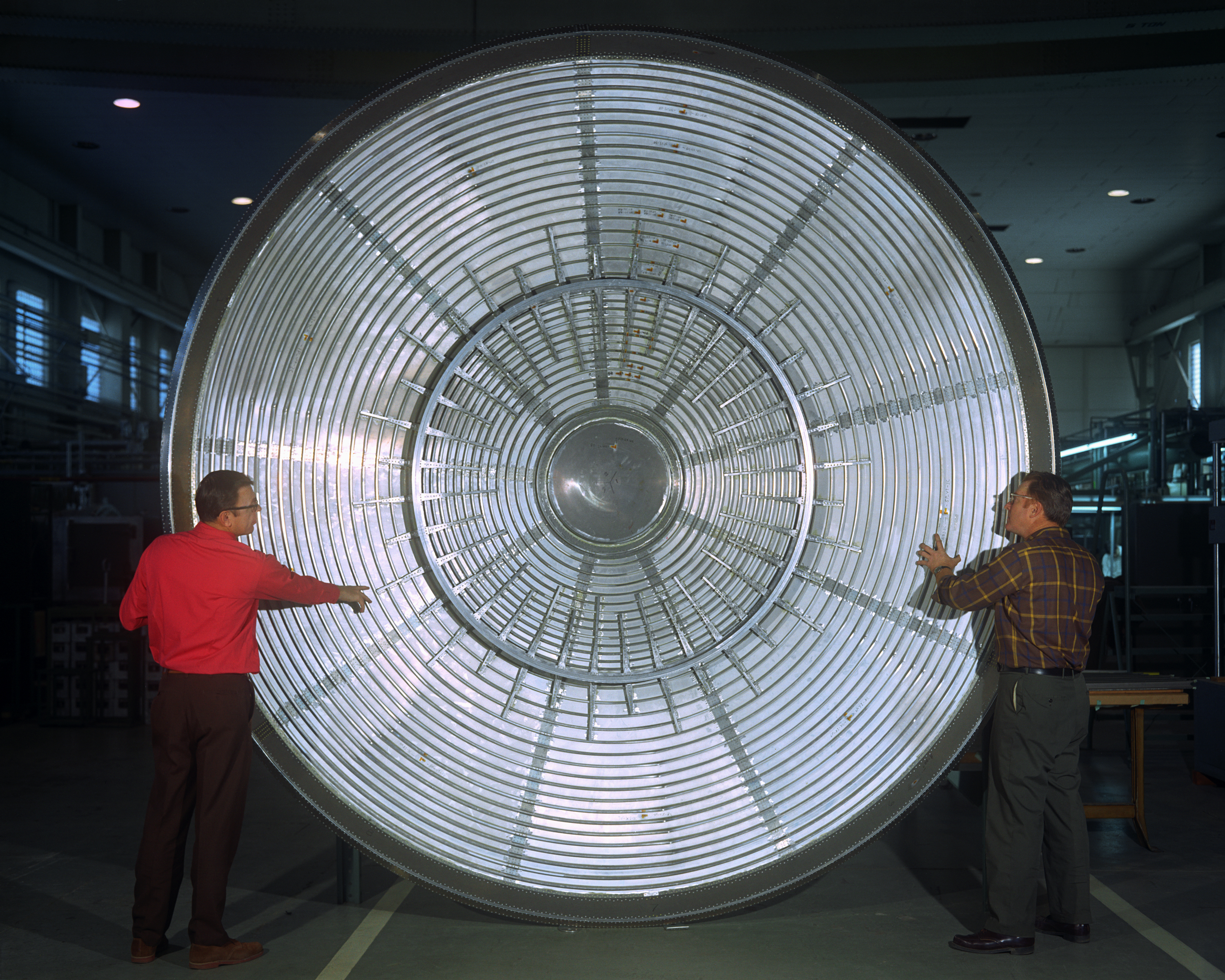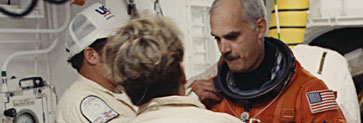By Freddie Douglas III
After a long day of travel, I found myself in a hotel elevator. I had recently graduated from NASA’s Accelerated Learning Option (ALO) at MIT, and I was proudly wearing my new school T shirt and baseball hat. Another man got on the elevator, turned to me and asked, “When did you get your brass rat?” I understood the reference to the school’s mascot, and I told my elevator companion that I had just graduated in 2002. Then the elevator door opened and we parted ways.
Two days later, the same gentleman approached me, mentioned MIT and then asked where I worked. I responded proudly, “NASA — Stennis Space Center.” After twenty years of NASA service, I was prepared to respond to what usually came next: “Where is Stennis? What do you do? It must be great to work for NASA.” That was not the case this time.
The conversation turned immediately into an attack on NASA. “The Agency,” the man told me, “is a waste of tax dollars. It should be disbanded and turned over to the private sector.” He was very upset that NASA hasn’t reduced the cost of getting payloads into orbit in order to make feasible the commercialization of space. He demanded to know why NASA hasn’t made space tourism a reality.
I gave my tried-and-true response: “NASA’s missions return great value because they help improve life here on earth.” But this time, my response fell on deaf ears; the man was clearly angry that NASA hasn’t opened space to the public. In the past, I might have continued to try to give an easy answer, blaming Congress or something like that. But since entering the ALO program, I’ve come to accept that providing easy answers rarely answers the real questions.
I gave his questions more thought, analyzing them the way I had learned to during my tenure at MIT. I then posed a question to him: “If you expect NASA to commercialize space, have you considered how value is derived from the process?” I explained that the commercialization of space is a function of reducing the cost of getting payloads to orbit via new launch vehicle architectures. Little of this made sense to the businessman with whom I was speaking, until I restated this position in economic terms: markets, profits, value, and customer. I won’t go into the details of the discussion that ensued, but I will say that it could never have taken place before I attended ALO.
Sometimes, we in NASA are so close to the effort that we lose sight of the true value of our work and how important it is for each one of us to be able to explain that value confidently and with conviction. Since completing the ALO program, I have given my work more thought, and have realized that it’s not enough that we do our best here at NASA to deliver cost-effective, high quality services. We need to focus our cost effectiveness and quality efforts on the things that matter to the customer. Yes, we need to deliver technically accurate services on time and within budget, but we also need to consider the big picture of value delivery, we need to address how specific stakeholders view value, and we need to concentrate our efforts where we add value for our stakeholders.
That broader view, I would argue, is just the beginning of the return on NASA’s investment in me.
The Accelerating Leadership Option (ALO) combines business management and systems engineering studies at the Massachusetts Institute of Technology (MIT), culminating in a Master of Science degree, with a one-year developmental assignment. But the real result of ALO is a dynamic group of leaders who will shape the future of NASA and its impact on the world.
The ALO program accelerates the development process of exceptionally promising NASA project leaders to positions of increased responsibility. Participants in the elite program are selected because of their technical expertise and proven leadership abilities. Through ALO, APPL provides an opportunity for these midlevel project managers to learn with the best and from the best.
The first ALO class entered the program in 2000. In addition to earning their MIT degrees, recent participants have completed developmental activities with IBM, Raytheon Corporation, EMC Corporation, Aerospace Corporation, National Reconnaissance Office, NASA Headquarters Office of Earth Science, NASA Headquarters Office of Aerospace Technology, and the International Space Station Program Office. The goal of this phase of the program is to arrange an assignment that is centrally involved with the mission of the participant’s home center, and that takes advantage of the graduate’s training while providing new challenges.
Following center and agency approval, applicants must be accepted by both the ALO program and MIT’s graduate school. APPL provides the funding for participants’ academic expenses, and centers support the developmental assignments.
Search by lesson to find more on:
- Professional Growth
Read more about APPL’s programs:
Transfer Wisdom Workshops
The Enterprise Project









